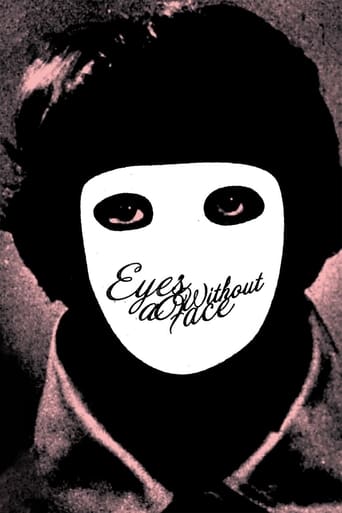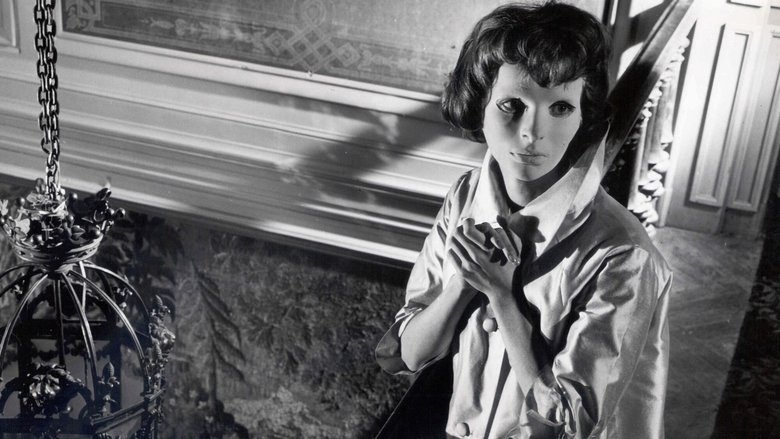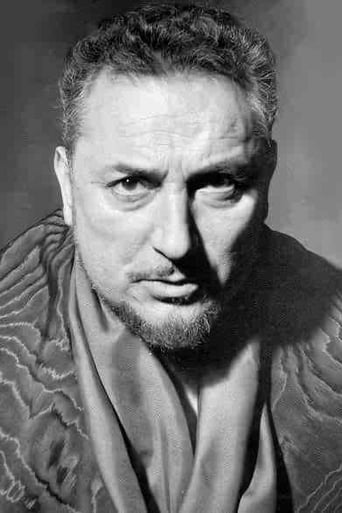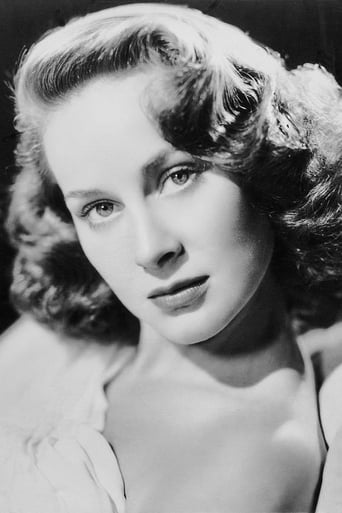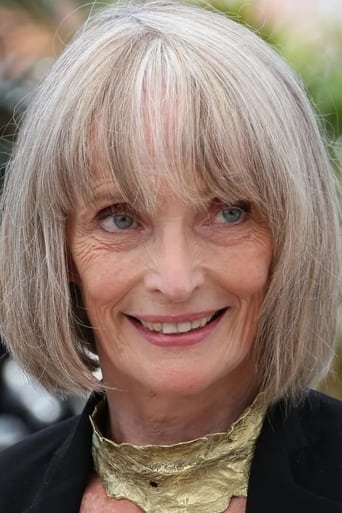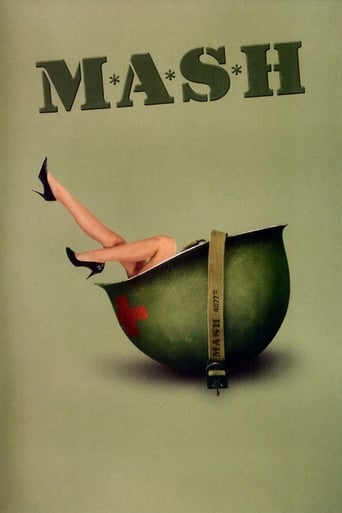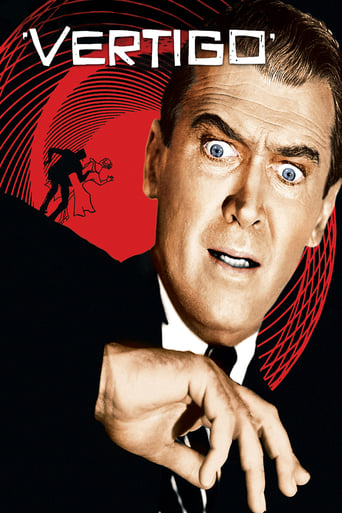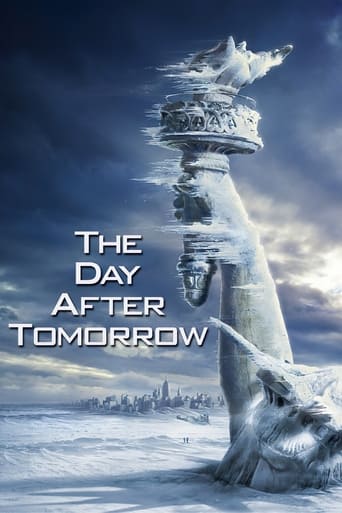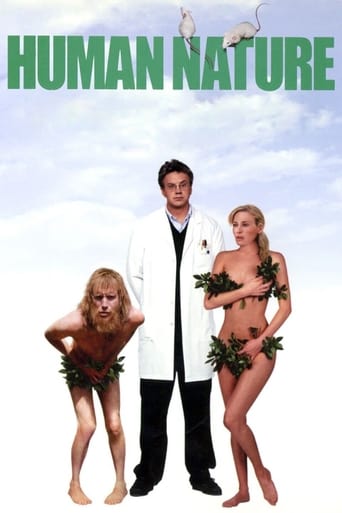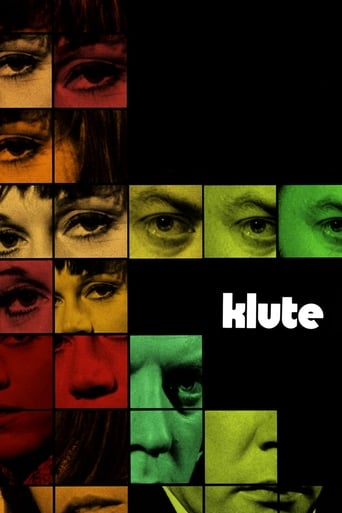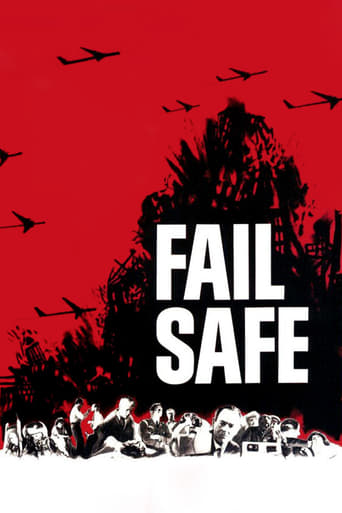Eyes Without a Face (1960)
Dr. Génessier is riddled with guilt after an accident that he caused disfigures the face of his daughter, the once beautiful Christiane, who outsiders believe is dead. Dr. Génessier, along with accomplice and laboratory assistant Louise, kidnaps young women and brings them to the Génessier mansion. After rendering his victims unconscious, Dr. Génessier removes their faces and attempts to graft them on to Christiane's.
Watch Trailer
Cast


Similar titles
Reviews
Truly Dreadful Film
All of these films share one commonality, that being a kind of emotional center that humanizes a cast of monsters.
It's the kind of movie you'll want to see a second time with someone who hasn't seen it yet, to remember what it was like to watch it for the first time.
It is an exhilarating, distressing, funny and profound film, with one of the more memorable film scores in years,
This is an artsy horror film from France made in 1960. A surgeon and his apprentice abduct women off the streets and then perform a facial surgery to graft their skin on a woman they have kept imprisoned. Saying anything more would be doing disservice to the film but here is what I can say: This is a haunting film full of intense atmosphere right from the location and setting to the method by which most actors enact their characters. The music also adds to the surreal nature and if such films with surrealistic images and intense atmosphere (which take preceding over plot or character) than this should be a must watch on your list.
After all the hype surrounding this film, I am kind of disappointed. This is not a bad film, but it feels like more effort could have been put into little details that would have elevated the film. The prosthetics, which should be the selling point of the film, were never entirely convincing except in the photograph sequence, which was a highlight. Spoilers: (They show the ruined face out of focus because you know they could not pull it off well. When the first girl's face is removed it just looked like they smeared blood on her actual face. When she's wearing the bandages, you can see skin where it showed they had removed it. Things like that really bothered me, and most would be easy to fix or film in a more convincing way.) The characters could have been fleshed out more, mainly the father and secretary. I liked how the girl was left to be more mysterious. I enjoyed the film, but it has major flaws.
A surgical genius (also a physician of a successful hospital) and his assistant secretly abduct, drug, and take the faces of certain girls who have specific characteristics similar to a girl considered vanished by the police after a horrific car wreck that mangled her face. This girl is the surgeon's daughter, and he was the reason the wreck happened in the first place. Feeling a strong guilt for "ruining" his daughter's face, it drives him to use his own "grafting techniques" in the hopes of giving her a new face, at the cost of other girls who look like her. When a victim's body turns up in the Sienne (dumped there by the assistant), the surgeon claims it is his daughter, providing him room to continue his work unabated. When one kidnapped girl's face is removed (a Swedish girl visiting Paris in the hopes of making something of herself), there's hope that this will be the success that has eluded the surgeon; when the victim jumps out of a window as it appeared she would never escape without further harm, once again the police are confronted with the idea of a serial killer. A third woman, similar to the two other victims, caught shoplifting, is essentially blackmailed by the police to help them catch the killer; the detail of a pearl necklace by a witness (friend of the window-leaping Swedish girl) initiates an eye on the assistant of the surgeon (who wears the necklace to hide her neck scar; she herself was a facially-scarred patient that had successful repairs by the surgeon, explaining her devotion to him).The white mask and glassy eyes, and how Christiane (Edith Scob) has movements of a spectre, very mannequin like in appearance, nearly a lost soul due to all she has endured (pops responsible for taking the faces of girls unapologetically; the flesh not taking to her face and staying healthy without deterioration; having to hole up in the home, not allowed to leave), her character and look is very iconic, very distinctive and memorable. The final act (with irony in regards to her father's face, and how the release of dogs and pigeons mirrors her own newfound freedom), where it is Christiane who stops the killers, her father (Pierre Brasseur) and his assistant, Louise (Alida Valli; Senso), not the police, is fitting. Edna's chapter is just heart-breaking. The image series where the flesh of the "replacement face" taken from Edna for Christiane itself is unsuccessful further emphasizes just why the poor girl is driven into madness. She is in her own personal hell that gradually affects her mental wellbeing, causing a decline that erupts at the end. A surgery of Edna is shown in some grisly detail; matter-of-fact and coldly detached from how horrible it is, the surgeon commits totally to the process. The opening drive by Louise with a dead body in her car's back seat, intently focused on finding just the right "dumping ground" is quite an unsettling beginning due to how business-as-usual it feels as if a routine that Louise has done before. Score is at times whimsical almost as preparing us for a Buster Keaton silent comedy, quite unexpected when compared to what scene it is applied to is actually developing before us. Valli's devotion to Brasseur is one of the disturbing details that proves that a repaired face could be perhaps a fair trade for helping to dispose of bodies. The surgeon's stone-faced, clinical behavior and ability to cut himself off from his misdeeds shows that no matter what crimes he commits, his grafting expertise for his daughter takes precedence over a few lives taken.
I think this is less horror than it is a drama of existential anguish in which horrifying things happen; all of the characters in some way are struggling to hold together or discover a certain reality and the truthfulness of what is happening, with little to no result. Doctor Génessier, the father who has grievously wounded his daughter in a car accident and desperately seeks to repair his daughter's face is a brilliant play on the 'mad scientist' archetype: he has a realised goal to which all of his energy is channelled, but he doesn't flail around with typical melodramatic ambition. His eyes are haunted and distant, and when he communicates with the outside world it is often brief philosophical responses. In all his preoccupation he seems to exist restlessly in a purgatory. But this purgatory is beautiful though; a subdued monochrome world built on fairly quiet visuals that are sharply punctuated by moments of horror which are surprisingly gruesome for 1960.One of the most disturbing scenes in the film comes at a moment when the Doctor presents a slideshow charting the gradual failure of a skin graft operation. We see pictures of his daughter's face as the body slowly rejects it and it becomes more deformed, and we wonder what he is willing to do to achieve success, and how much she has to suffer in its pursuit. There are moral ambiguities here, but his goal is not as unreasonable as it is his methods. He coldly buries someone's daughter under the pretence that it is his own, he ensnares young women in his house, and he keeps dogs and birds locked away somewhere in his cellar like a fairy-tale villain, the said dogs cruelly confined in these odd, almost space-age pens. But the ultimate emotional pain comes from his daughter, Christiane, who is the final victim of all this, as she to carry the weight of everything her father does, which is supposedly for her. Her introduction is marvellous, using the striking mise-en-scene and confusing spatiality of the mansion to great surreal effect. It reminded me of The Shining, which uses a similar effect in the geographical discrepancies of the Hotel to maintain a sense of isolation and discomfort. We follow Doctor Génessier as he arrives in the dark, obscured cellar of the mansion, his arrival greeted only by the endless barking and howling of the dogs. He then slowly begins to ascend through the levels of the house; at first quite foreboding with the high windows and cage-like chandelier, and then quite comforting in the final floor of the house, which is soft and serene with its white corridors and crackling fireplace. This is almost a hell to heaven transition, but Christiane's situation is too painful for this to be heavenly. She is locked away like a princess in a tower, and her rescue is not imminent. One of the most singularly beautiful and yet haunting images is the mask she wears to disguise her face. This is a testament to the ability of Edith Scob who has to convey almost entirely through the eyes, the striking emotion of which is painfully juxtaposed against the inhuman stillness of the mask. I wonder how Keanu Reeves would emote if he were to wear a mask like this. When she calls her fiancé (who is believes she is dead) but cannot bring herself to speak is now probably the single greatest silent phone call I've seen, which is refreshing because the call-but-not-a-call can be an insufferable cliché sometimes. I wish the two Policemen had been given a little more development. There was perhaps a little comedy that could have been found in the veteran/rookie pairing, which could have lightened the load of all the melancholy, if only briefly, but if not that just a little more character to heighten the dramatic value of their investigation a little more. I look to The Exorcist for an interesting secondary story, in which the Policeman character creates a conflict between our need to see him succeed or escape harm and our interests in their MacNeil family and their wellbeing. The eventual plan of the Police in order to ascertain the guilt of Génessier felt a little weak though, as they use a decoy to try and prove their suspicions, yet don't do anything to make sure they are nearby and could intervene if her safety is compromised. But maybe that's just a misguided attempt at trying to suggest 'improvement'. This film is a stunningly poetic look at the longing for identity, a theme which finely presents itself in the characters. Louise, Génessier's assistant, is the only one to have had a successful face transplant, yet despite this sense of self she fails to integrate into society, and instead helps Génessier with his crimes. Her presence is always accompanied by this slightly menacing fairground-esque music, or something echoing a carnival, which is appropriate because she is a freak-show, presenting the dire moral implications of Génessier's pursuit. In the end, Christiane, who like a Snow White, complete with the birds fluttering around her shoulders, is almost beautiful, yet the physical sense of self has not been reconciled with the soul. The eyes are considered windows to the soul, but how much of that soul remains if those eyes are without a face?

